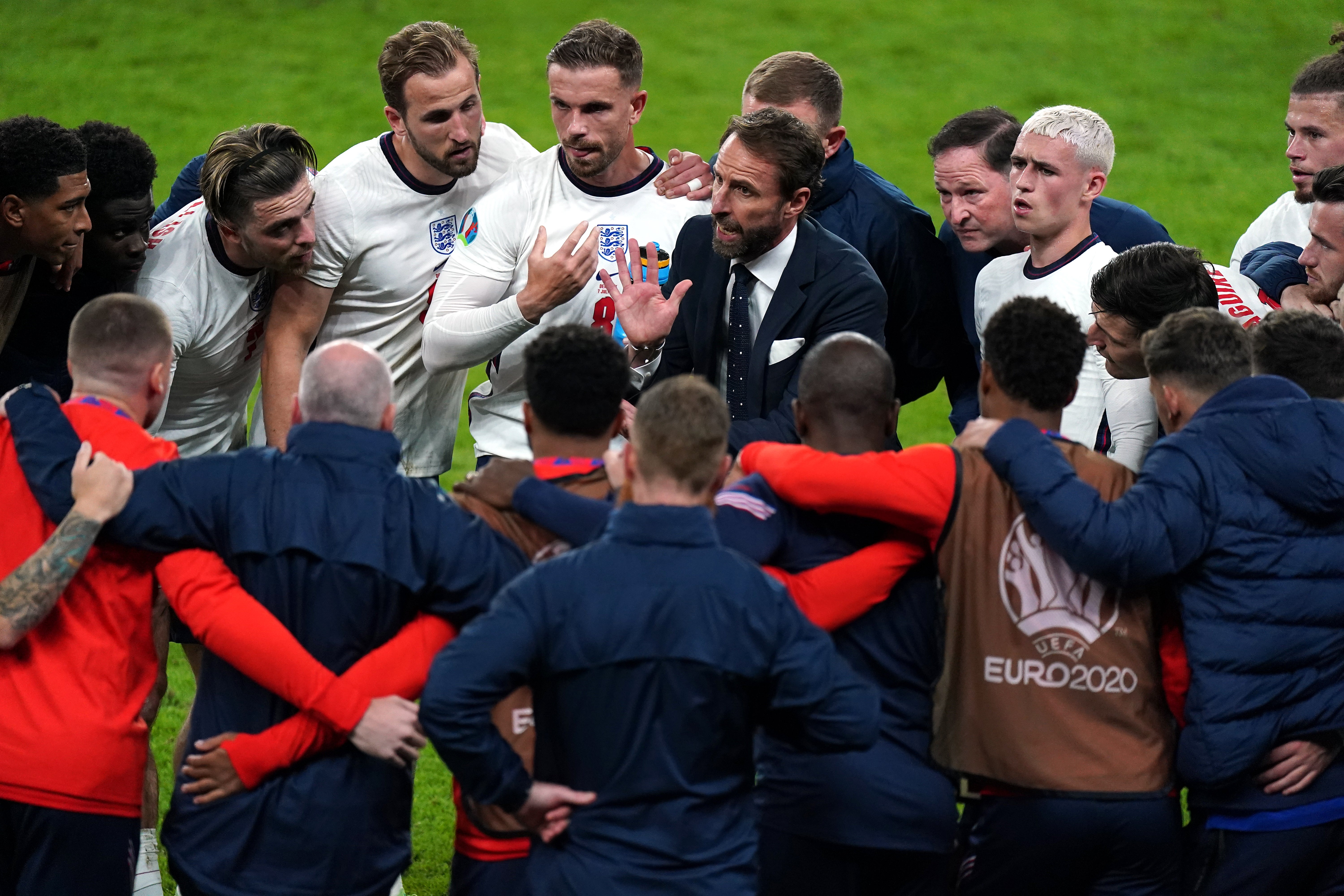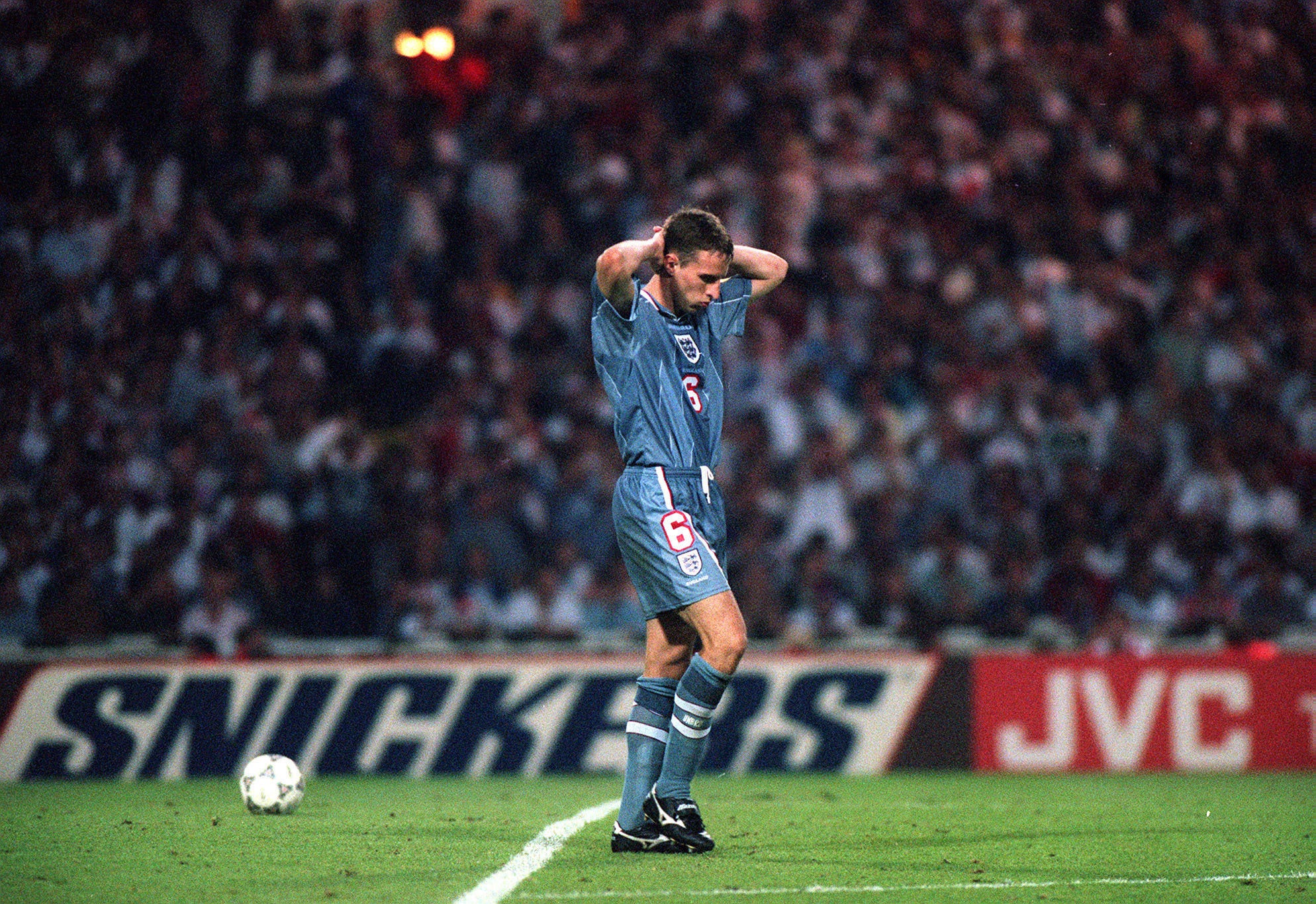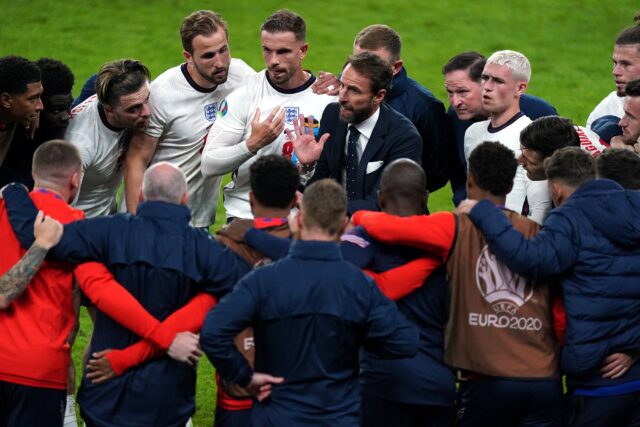Your support helps us to tell the story
From reproductive rights to climate change to Big Tech, The Independent is on the ground when the story is developing. Whether it’s investigating the financials of Elon Musk’s pro-Trump PAC or producing our latest documentary, ‘The A Word’, which shines a light on the American women fighting for reproductive rights, we know how important it is to parse out the facts from the messaging.
At such a critical moment in US history, we need reporters on the ground. Your donation allows us to keep sending journalists to speak to both sides of the story.
The Independent is trusted by Americans across the entire political spectrum. And unlike many other quality news outlets, we choose not to lock Americans out of our reporting and analysis with paywalls. We believe quality journalism should be available to everyone, paid for by those who can afford it.
Your support makes all the difference.
Gareth Southgate has plenty of fond memories to look back on during his time as England manager, from the country’s first penalty shootout victory at a World Cup, against Colombia at Russia 2018, to Ollie Watkins’ dramatic extra-time winner against the Netherlands this summer. But he is in no doubt about the pinnacle of his eight-year reign, the moment when it felt like his football team were almost single-handedly leading their country out of its pandemic slump.
“Definitely beating Denmark in the semi-final at Wembley,” Southgate tells Lauren Laverne in his appearance on BBC Radio 4’s Desert Island Discs on Sunday. “I mean, both semi-finals that we won were dramatic games – Holland in the last Euros, Denmark in the previous one – but just that feeling and that understanding that this was going to be the first final for 55 years, and that we were creating another bit of history in our journey as a team.
“And just to see what it meant to people, what it meant to the country. Not only in the stadium that night but the days that followed, leading into the final and the journey to the stadium of the final, where we were just coming out of that Covid period but the streets were lined with people all the way from Watford, where we were staying, where I was born, right the way to Wembley. An amazing thing to experience.”
That Euro 2020 semi-final was a tense affair. Harry Kane scored the winning goal in extra time after pouncing on the rebound of his own missed penalty, spilled by Danish goalkeeper Kasper Schmeichel. It settled a nerve-shredding evening and England’s players ended the night dancing on the pitch to Sweet Caroline as fans sang along.

“Clearly clubs mean a lot to people … but the national team captures everybody, because it’s not just the regular football fan: it’s auntie, it’s granddad, it’s the whole family coming together for national moments. They’re a bit like royal events, the big tournaments, the things that bring together viewing figures of 25 million plus across all the different platforms we have now. But people do remember where they were when those games were played, and they do remember those iconic moments.”
Southgate also re-lives his infamous missed penalty at Euro ‘96, again at Wembley, which saw England knocked out by old rivals Germany.
“I thought that we played well during the game, and that there were two really big chances towards the end of extra time that we didn’t quite connect with. We’d won a penalty shootout the Saturday before in the quarter-finals against Spain. And then I just remember (captain) Brian Robson coming to me in the gap at the end of the game saying, you know, if the penalties goes to No 6, are you happy to take a penalty? And because I’d been a captain all my life and had a sense of responsibility [I said] yeah, no problem. But I’d only taken one previously, and that was at [Crystal] Palace, and the keeper had saved it.
“I’d say it was the only thing that we hadn’t prepared to a really high level in the coaching area. And ultimately I wasn’t able to execute a skill under pressure. That’s what it boiled down to. People talk about penalties being luck, but that’s not how I see it. That’s not what I took from it when I was coaching my team. Subsequently, you’re then living with the fallout from being the guy that has ultimately missed the penalty that’s cost us a place in the final.”

There would be an eerie parallel with his managerial career a quarter of a century later, when Jadon Sancho, Marcus Rashford and Bukayo Saka all missed penalties which sealed Italy’s win over England in the final at Wembley. Just days after the giddy high of beating Denmark, the country’s euphoric bubble was burst not only by defeat but by ugly scenes of rioters storming the stadium, and then racist abuse of the three players blamed for defeat.
“My first thought was, I’ve got to protect them,” Southgate recalls. “Then, overnight, they suffered a lot of racism as well. So the following day, when I was speaking with the media, I was very clear that we’ve been on this amazing journey together as a team, but it’s not acceptable that now we’re knocked out, all of a sudden everybody fractures, and the nation fractures, and the public generally saw that that wasn’t an acceptable reaction.
“There was a lot more positivity then towards the boys, which is as it should have been, but you’ve got to help them. That’s what coaching is about.”
Gareth Southgate is on BBC Radio 4’s Desert Island Discs at 10am GMT, Sunday 21 December






